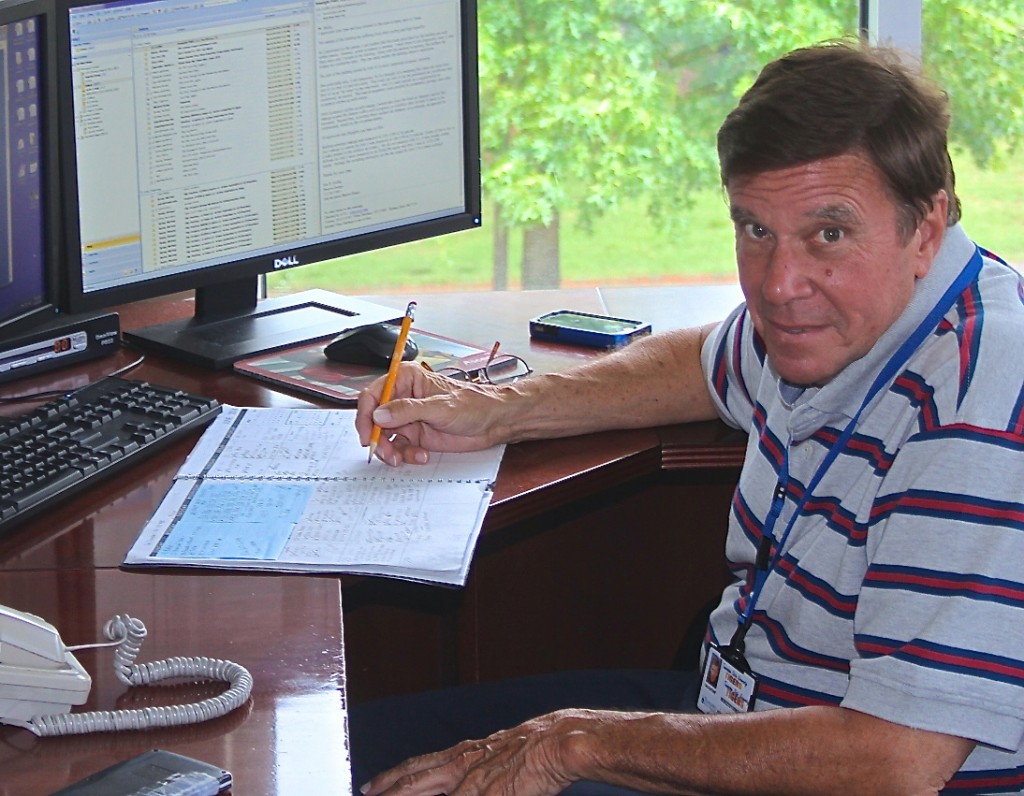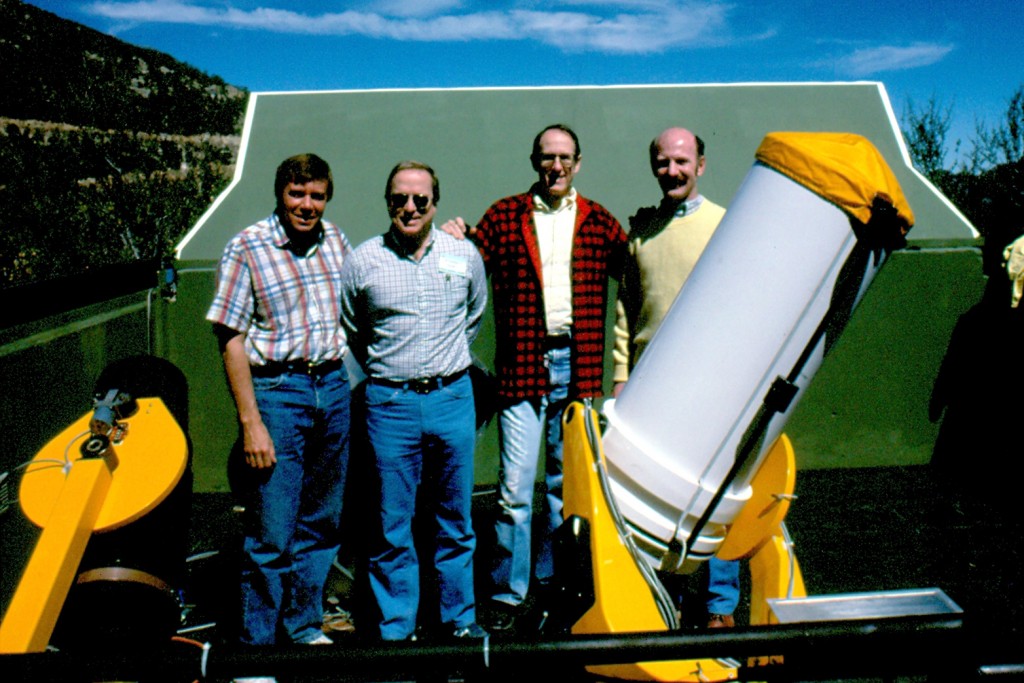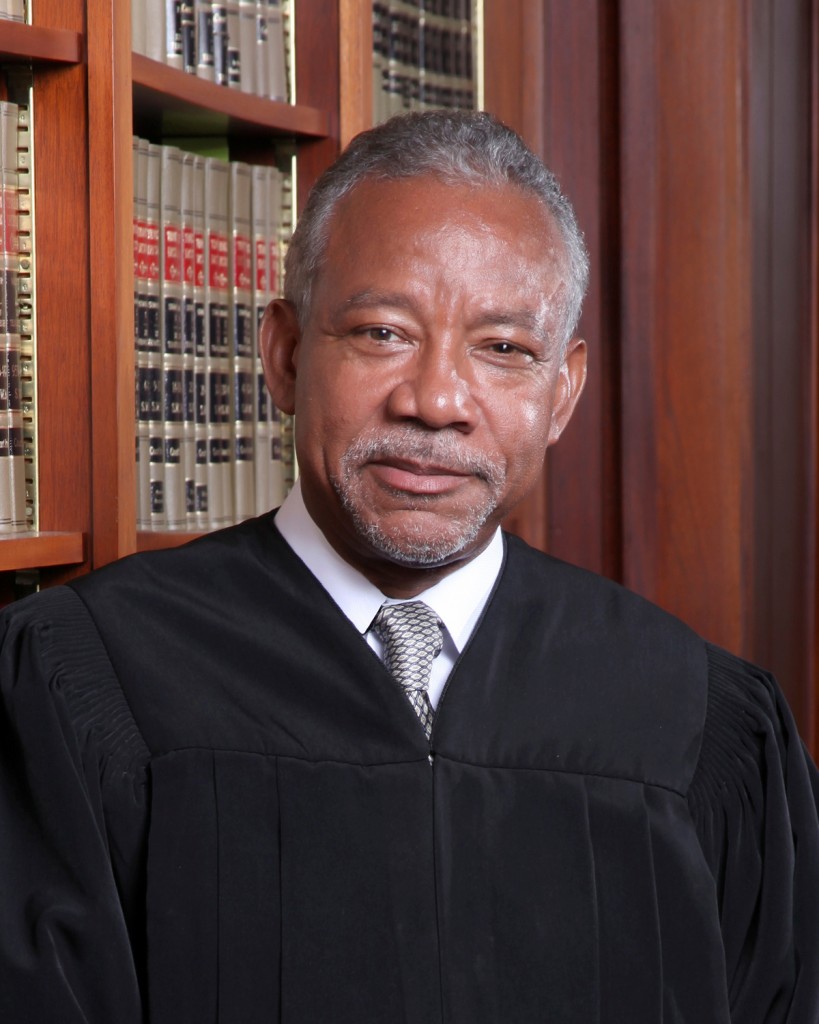
NASHVILLE, Tenn. (TSU News Service) – Even with the development of a widely recognized astronomy program that saw the construction of a robotic observatory center, and the detection of a planet orbiting another star – all under his watch – Michael Busby is not jumping at any credit for a mounting of scientific advances at Tennessee State University.
“I have been fortunate to work with some very talented and gifted people who made these things possible,” said Busby, who retired June 30 from TSU after nearly 44 years as an engineer, professor and administrator.
“It’s been a rewarding experience. I owe Tennessee State University so much to have been put in positions where I did not only use my talent but was given opportunities to work with some very incredible people and administrators to help us achieve so much,” Busby said.
Recounting his years at TSU, Busby, 69, was visibly emotional when he talked about the satisfaction he received when the University gave him his first “big career break” to join the faculty in 1972, not long after earning a Ph.D. in mechanical engineering from the University of Tennessee.
“Although I had a job working for a company briefly after I left UT, I found the opportunity to work at TSU and interact with so many students and other faculty to be an excellent career start,” Busby added.
He talked about many achievements, but for him what stood out the most was the opportunity to head the newly established Center of Excellence, a multidisciplinary research laboratory founded in 1986 within the state-wide Centers of Excellence program to increase the research base of Tennessee, as well as serve as a research resource for faculty and students of TSU.
“The center allowed us to advance in so many areas, collaborate with many national and international scientific and government agencies and institutions, and to develop faculty and students who are considered among the best in the nation,” Busby said.

Under Busby’s watch, the center established an Automated Astronomy Group of faculty, graduate and undergraduate students, researchers, and support staff with automated telescopes, advanced control systems and systems identification, and applied mathematics. The automated astronomy research program began as a collaborative effort with Vanderbilt astronomers to study a mysterious new class of variable stars. TSU now owns and operates eight robotic telescopes at the Robotic Observatory Center in the Patagonia Mountains near Washington Camp, Arizona.
On Nov. 14, 1999, a team led by TSU astronomer Greg Henry, announced the discovery of a shadow of a planet crossing a distant star. The discovery made national and international news.
“…I want America to know about your enormous contributions to research. I want every American to know that last November, Tennessee State astronomers made the world’s first direct detection of a planet orbiting another star,” then President Bill Clinton announced at the annual National Association for Equal Opportunity in Higher Education Leadership Award Banquet in Washington, D.C., on Feb. 16, 2000.
“That was a crowning moment for the Center of Excellence and the Automated Astronomy Group…all because we had outstanding scientists and people doing what they are good at,” Busby added.
For a mechanical engineer with no specific background in astronomy, bringing the program together with the right people in place, and to achieve such prominence, speak to Busby’s “outstanding leadership and managerial genius,” one colleague said.
“His vision and management style made all the difference,” said Henry, an original member of the Automated Astronomy Group who has been with the University since Busby brought him on nearly 25 years ago.
“His genius was having the vision of what this center would be. He hired the right people, gave them what they needed and allowed them to do their work,” Henry added. “And he takes no credit for it.”
In the 26 years since its establishment, the COE has brought in more than $40 million in external funding through grants, and total faculty publications in refereed and non-refereed journals is nearly 1,300. Student support for an average 41 undergraduate and 10 graduate students per year is about $500,000.
With all of these achievements, no doubt colleagues and administrators see Dr. Busby’s departure as a “huge” vacuum being created at the University.
“Dr. Busby has been an outstanding instructor and researcher at TSU for decades,” said Dr. S. Keith Hargrove, dean of the College of Engineering. “His loyalty and dedication to the university is unwaverable….and his iconic presence will be missed by his colleagues and students.”
In addition to teaching and heading the COE, Busby also served in many other capacities over the years. One of his last roles was serving as interim associate vice president for Research and Sponsored Programs, a position he held until his retirement and the subsequent hiring of a new associate vice president.
The new Associate Vice President, Dr. Lesia L. Crumpton-Young, who worked with Busby for several months before his retirement, described the longtime TSU professor and administrator as providing “outstanding leadership that significantly impacted the research notoriety” of the Center of Excellence in Information Systems.
“Mike Busby has worked tirelessly to grow the research enterprise at TSU and we are truly grateful for his leadership and long-term commitment to the University,” Crumpton-Young said.
As he leaves, Busby said he is very optimistic about the future of the center and the University.
“I am very pleased with the kind of people and administrators we have in place at the institution. We have people who truly care about TSU and who want to take TSU to places it’s never been before,” Busby said.
About retirement, Busby said he is going to stay busy spending more time with his wife of 51 years, and keeping up with an engineering consultancy he has long been involved with, except this time, he will control his own time.
“I am retiring with a great deal of joy,” the Goodlettsville, Tennessee native added.
Department of Media Relations
Tennessee State University
3500 John Merritt Boulevard
Nashville, Tennessee 37209
615.963.5331
About Tennessee State University
With nearly 9,000 students, Tennessee State University is Nashville’s only public university, and is a comprehensive, urban, co-educational, land-grant university offering 38 undergraduate, 22 graduate and seven doctoral programs. TSU has earned a top 20 ranking for Historically Black Colleges and Universities according to U.S. News and World Report, and rated as one of the top universities in the country by Washington Monthly for social mobility, research and community service. Founded in 1912, Tennessee State University celebrated 100 years in Nashville during 2012. Visit the University online at tnstate.edu.

